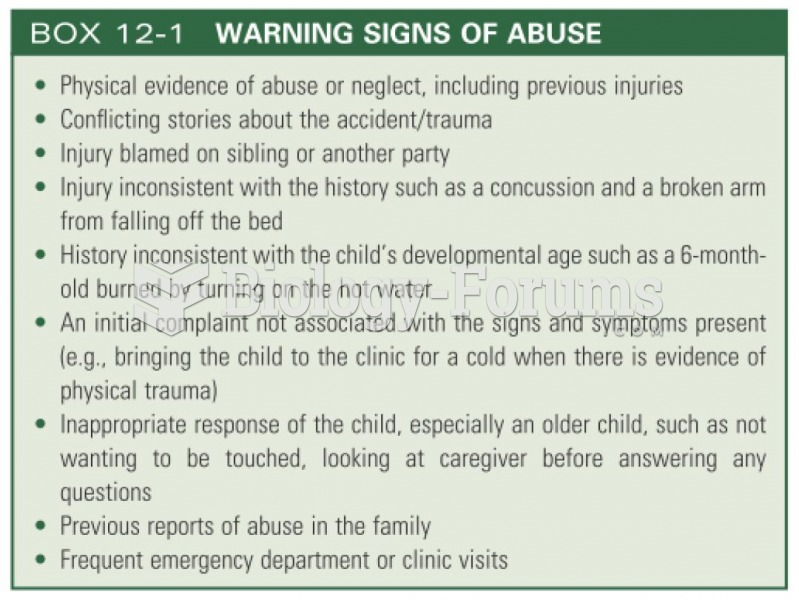|
|
|
Many supplement containers do not even contain what their labels say. There are many documented reports of products containing much less, or more, that what is listed on their labels. They may also contain undisclosed prescription drugs and even contaminants.
The Romans did not use numerals to indicate fractions but instead used words to indicate parts of a whole.
Thyroid conditions may make getting pregnant impossible.
Methicillin-resistant Staphylococcus aureus or MRSA was discovered in 1961 in the United Kingdom. It if often referred to as a superbug. MRSA infections cause more deaths in the United States every year than AIDS.
Cucumber slices relieve headaches by tightening blood vessels, reducing blood flow to the area, and relieving pressure.








